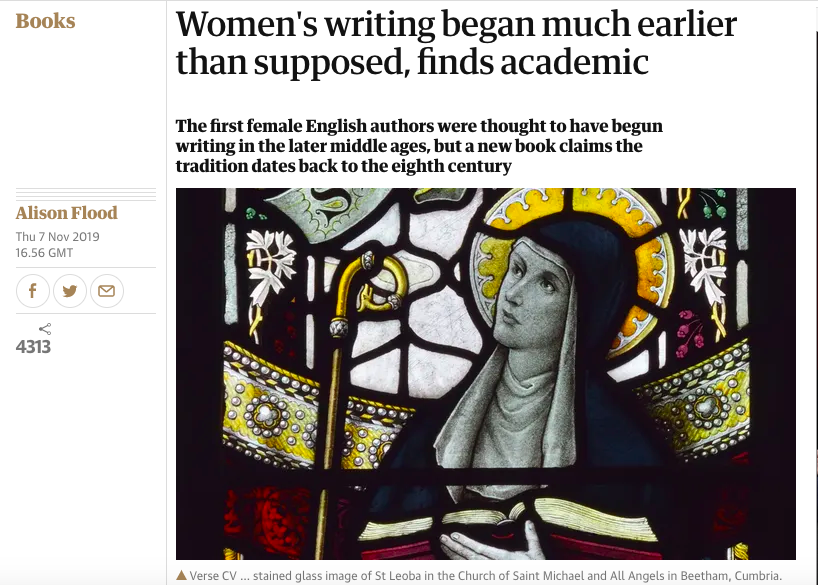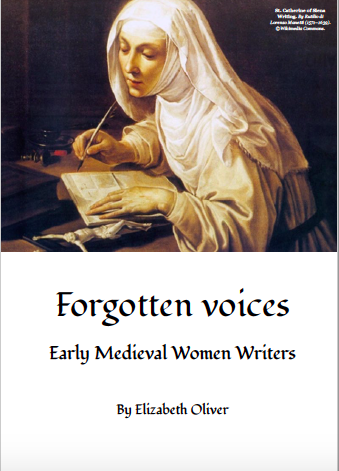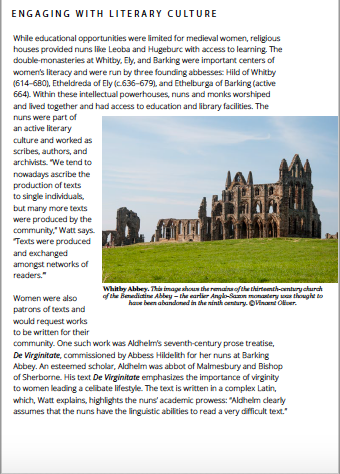
Women’s literary history in England is usually taken to start in the later Middle Ages. Many students are taught that the first women writers were the visionaries, Julian of Norwich and Margery Kempe who lived in the late 14th and early 15th centuries. More recently attention has also been paid to earlier Francophone ‘English’ writers such as Clemence of Barking and Marie de France.
The pre-Conquest period is almost completely overlooked. Students don’t encounter any women writers at all when they study Old English literature. Perhaps this is because most (but not all) of the texts authored by women in this period were written in Latin, but to ignore them misrepresents the literary culture of the time.
My research, by focusing on the literary cultures of the women’s religious houses, reveals that throughout the early Middle Ages women composed and commissioned texts, and also played important roles as archivists and scribes.
This has implications both for traditional literary history and for feminist literary history. The project has generated significant media interest.
I was interviewed about this research project by Alison Flood. Her article was published in the Guardian on 7 November 2019.
The project also featured in the Christmas issue of the BBC History Magazine published on 26 November.
On the same day I appeared on the Moncrieff Show on Newstalk.
On 10 January 2020 I was interviewed on Swiss National Radio on Radio SRF 2 Kultur. The interview itself and a German language article based on it are available here. The French language article is here.
On 16 January, the Times Higher Education published a review by Dr Hetta Howes of my book Women, Writing and Religion in England and Beyond, 650-1100 which can be read here.
In time for International Women’s Day 2020 a review of the book was published in the Women’s History Review and in April I was interviewed for a special issue of the Medieval Magazine on Medieval Women Writing.
The book is also the subject of extended review essays by Mary Wellesley, (entitled ‘Love, Ecgburg’) in the New York Review of Books (22 October 2020) and Irina Dumitrescu (‘The Flower and the Bee: Many Anons’) in the London Review of Books (22 April 2021).
In addition the book is mentioned in this OED blog post by Catherine Bowden on Early Women of the OED: 690-1100CE.


